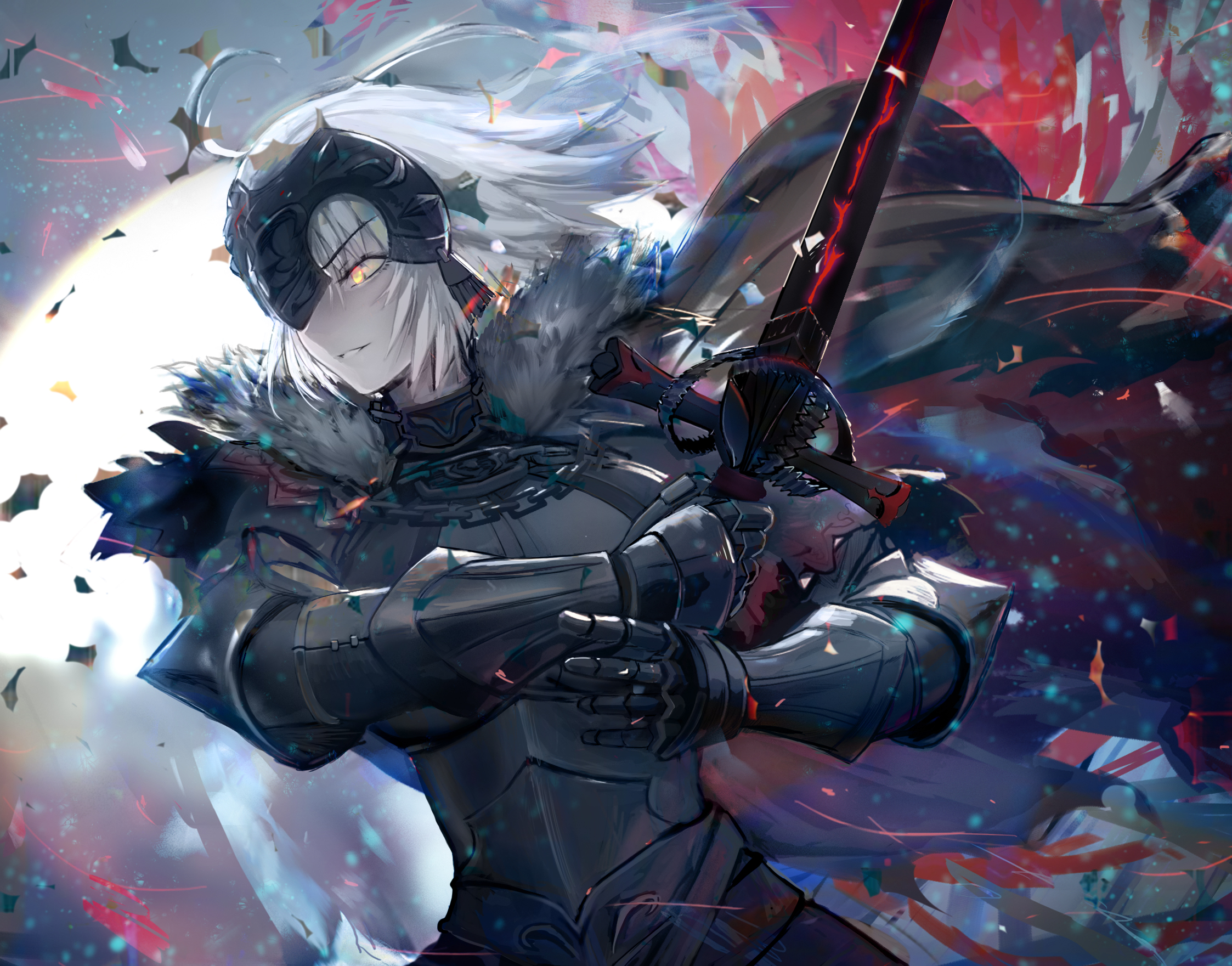
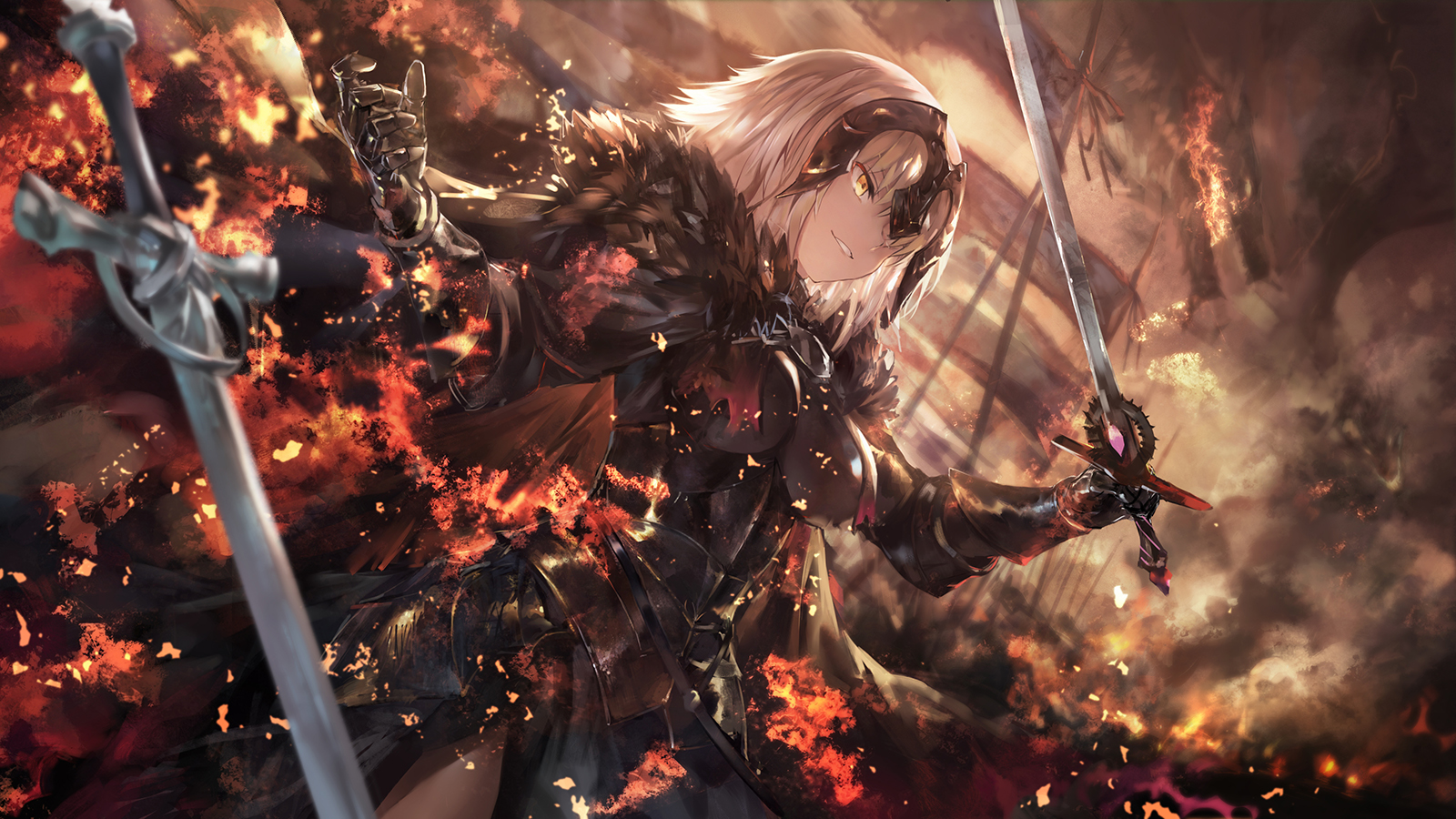

Contents
The Dusksworn
- Introduction...................................................................................... 1
- Class Features.................................................................................. 2
- Spell List........................................................................................... 7
Subclasses : Malefic Pledges
- Pledge of the Crownbreaker.......................................................... 8
- Pledge of the Hellfire Knight......................................................... 9
- Pledge of the Lichblade............................................................... 11
- Pledge of the Mindscourge......................................................... 12
- Pledge of the Rimebound............................................................ 14
- Pledge of the Shadow Thane..................................................... 15
Changelog
- Changelog....................................................................................... 17
Artist Credits
- Cover : 无题 by 昇空
- Contents : 无题 by Azomo
- Page 1 : セイバーオルタ アナザー by 虫麻呂
- Page 2 : 「暴君」 by てぉ
- Page 4 : ジャンヌオルタ by marumoru
- Page 7 : 竜の魔女 by 純白可憐(Pale)
- Page 10 : C96【新刊表紙】とお品書き by 光崎
- Page 11 : 死告天使 by ちきち
- Page 13 : 46 by Dr.Rohan
- Page 15 : C98 セイバーオルタ by 我美蘭@土曜日 西あ31a
- Page 16 : 黑 by ₩ANKE
- Back : 吼え立てよ by 英エイスト
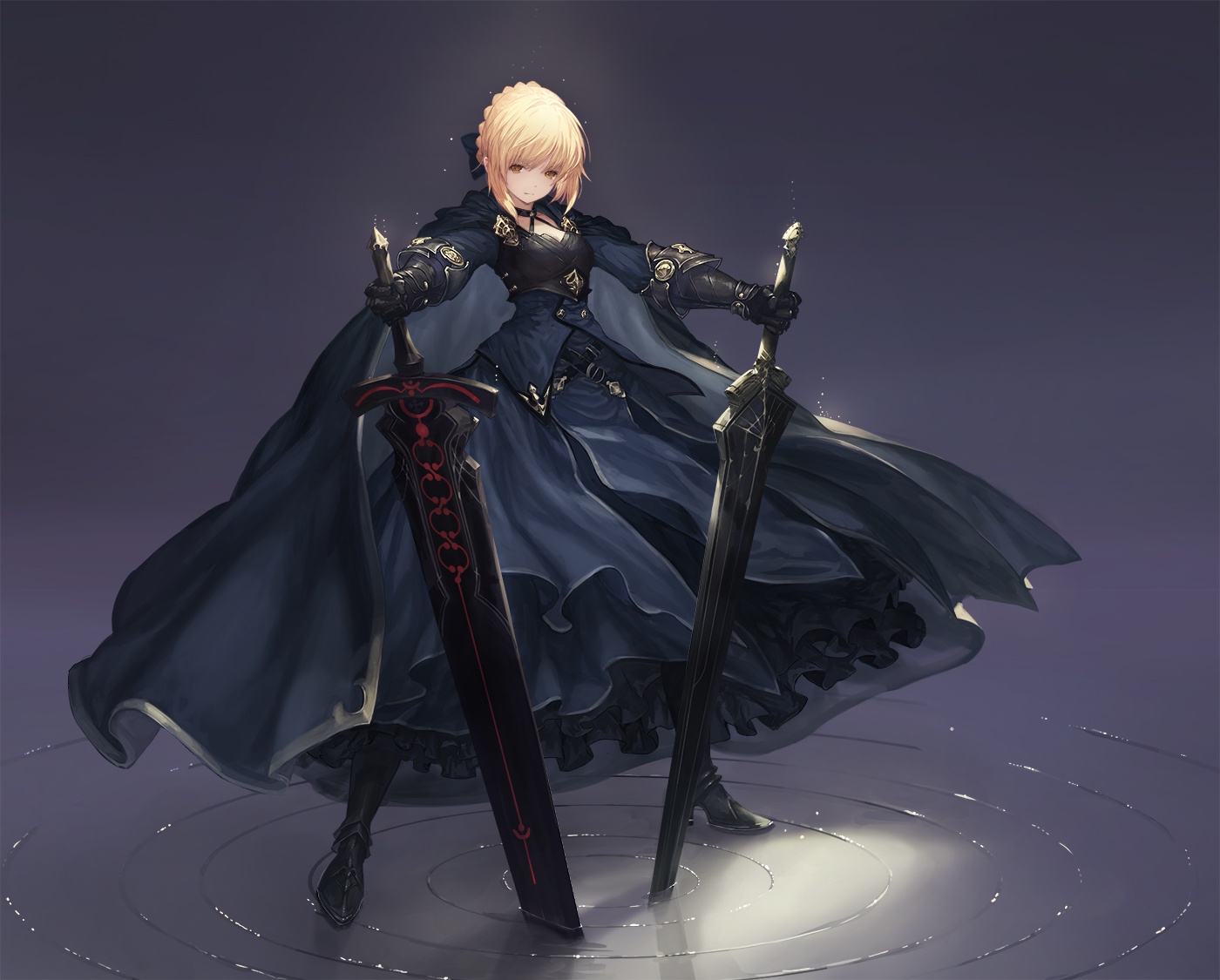

Dusksworn
"Alas, these poor souls. Damned by the great powers that be, rather than the choices they have made. To wield evil, yet not desire villainy. For each divine that preaches goodness, there is one that is wretched, twisting the unfortunate and shaping them into a force to be reckoned with. Yet, the side that they choose to stand with is a question that I cannot answer." ─ ?
A human smirks as thugs mock his defenselessness. They approach with wicked grins that contort into horror as smog coalesces into a jet-black claymore in his hands.
Beckoning the darkness within him, a dragonborn's hand is wreathed in black flames. The gnome that cowers before him withers from his pernicious touch and the darkness engulfing his hand recedes.
Tracing the contours of the ground with her fingers, an elf watches as a skeleton rises from the gilded coffin in front of her, waiting to command it.
Dusksworn is the given title of the (unlucky?) people who wield these powers, specific to a particular plane of existence. Setting agnostic titles that you can use in lieu of this are the Doomknight, the Forsaken, or the Praetorian, for instance.
Whatever their origin and goal, dusksworn are wielders of malevolent evil. Whether voluntarily acquired or thrust upon them by greater entities, dusksworn use the sinister powers that they possess to fulfill their goals.
Exalted by Darkness
Dusksworn are wielders of dark magic, though not always of their own volition. Some naturally possess their sacrilegious might from birth, while others have this dark fate thrust upon them against their will by an evil god or other being of cosmic power.
Perhaps their faith in something malicious rewarded them with their powers. No matter who or what the source of their wicked powers is, a dusksworn isn't naturally predisposed to evil.
Of those who learn to master their dark powers, not all can take up the mantle of a dusksworn. A dusksworn may spend years learning the skills of combat, becoming familiar with a variety of weapons and armor.
Moreover, while not every dusksworn is a criminal or dark lord, they don't have an inclination to be a cause of justice or righteousness either. Scorned for the powers that they wield, dusksworn are often shunned from society, left with no other choice but to lead unsavory lifestyles.
Shadowed Life
Due to their powers, most dusksworn are heavily ostracized and discriminated against. Shunned for their natural gifts, dusksworn tend to gravitate toward adventuring to make a living.
As such, dusksworn take adventuring seriously. Some seek fortune in treasure hoards so they can one day live in peace, or take up a life of traveling endlessly to avoid discrimination. Regardless, a dusksworn's motive for adventuring is rarely to enact a malicious scheme or some world-ending plot.
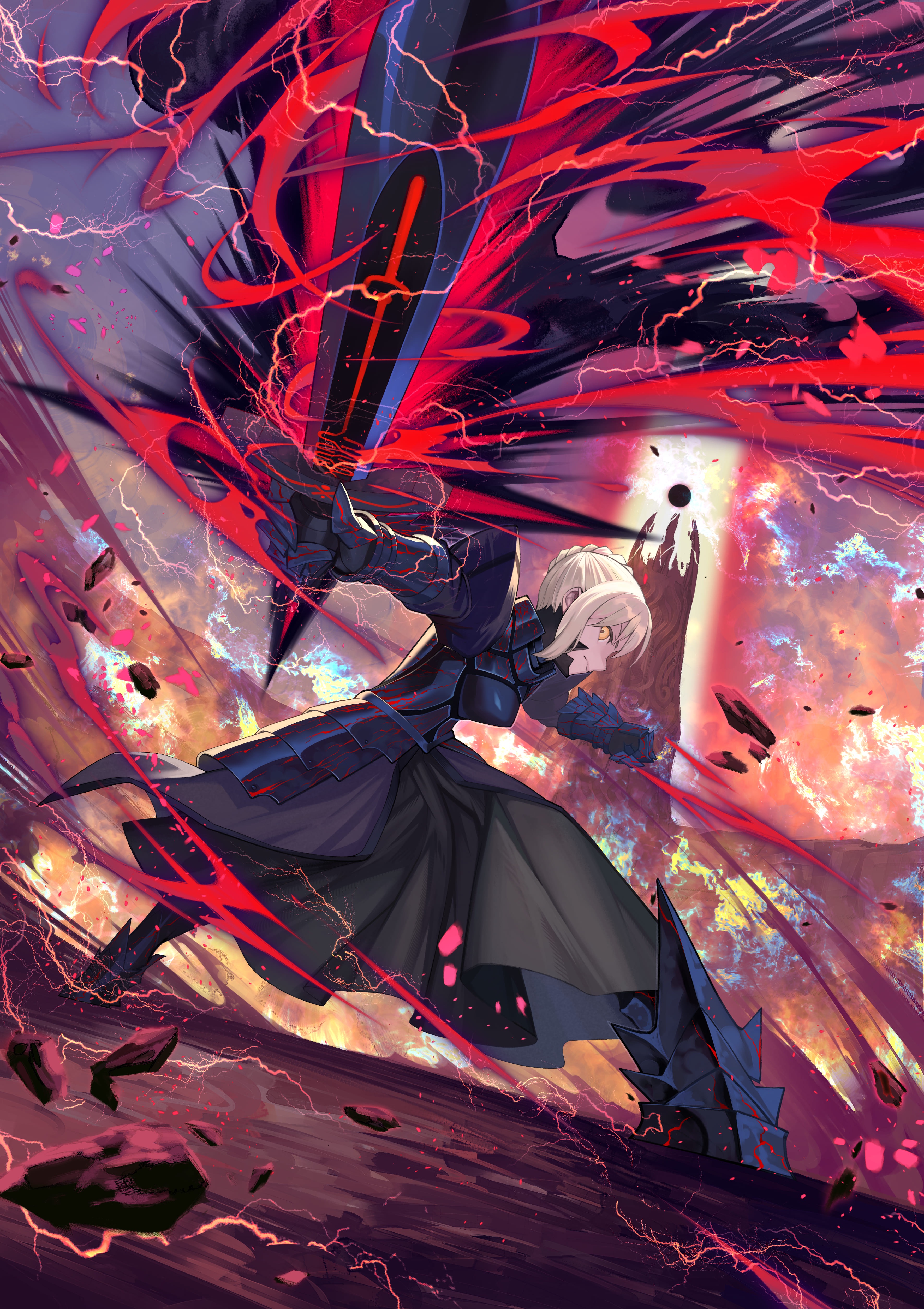

Accursed Genesis
The faculty granted to dusksworn can come from a variety of sources. These powers might have been thrust upon you by a god without your say in the matter, or they were awakened by a traumatic event. No matter how you gained them, the might you wield forever tarnishes you in the eyes of others.
To add some backstory to your dusksworn, roll or pick one origin from the Dark Origin table, or create your own. It has no game effect, but fleshes out the source of your character's powers. They're a great role-playing tool to add character to the game. Then consider why your character your character was given their newfound powers. Do they have any bearing on your character's personality and background?
Creating a Dusksworn
As you create your dusksworn character, consider how their powers came to be, and how others interact with them. Did you naturally come upon the wicked powers you possess, or was it bestowed upon you by an evil deity?
Moreover, what goals does your character have? Do they wish to embrace the darkness within them, or do they desire to become a figure of justice despite their malevolent origins?
Lastly, while the dark powers that dusksworn wield are conflated with evil, they aren't always of evil alignment. Most use their powers just to make ends meet, or live another day.
Dark Origin
| d6 | Origin |
|---|---|
| 1 | A traumatic event awakened your dark powers. |
| 2 | Your powers were forced upon you by a deity against your volition. |
| 3 | You made a deal with some kind of greater evil to obtain your powers. |
| 4 | An eldritch entity from the Far Realm unknowingly granted you your abilities. |
| 5 | You were betrayed and left for dead but somehow survived, returning with these newfound powers. |
| 6 | Your faith in something sacrilegious was rewarded one day with your dusksworn abilities. |
Quick Build
You can quickly create a dusksworn by following these suggestions. Make Strength your character's highest ability score, followed by your choice of Charisma or Constitution. Second, choose the criminal or urchin background.
Optional Rule : Multiclassing
If your group uses the optional rule on multiclassing in the Player's Handbook, you must meet the prerequisites listed below in order to multiclass into a dusksworn.
Ability Score Minimum. The prerequisites to multiclass into a dusksworn or take a level in another class if you are already a dusksworn is a Strength or Dexterity score of at least 13 and Charisma score of at least 13.
Proficiencies Gained. If dusksworn isn't your initial class, you gain proficiency with light armor, medium armor, shields, martial weapons, and simple weapons.
Spell Slots. You add half your dusksworn levels (rounded down) to your total multiclass spellcaster level to determine your available spell slots when multiclassing as a dusksworn and at least one other class with the spellcasting feature.
Class Features
As a dusksworn, you gain the following class features.
Hit Points
- Hit Dice : 1d10 per dusksworn level
- Hit Points at 1st Level : 10 + your Constitution modifier
- Hit Points at Higher Levels : 1d10 (or 6) + your Constit-ution modifier per dusksworn level after 1st level
Proficiencies
- Armor : All armor, shields
- Weapons : Simple weapons, martial weapons
- Tools : None
- Saving Throws : Constitution, Charisma
- Skills : Choose two from Athletics, Deception, Insight, Intimidation, Investigation, Perception, and Survival
The Dusksworn
| Level | Proficiency Bonus | Features | Ruin Dice | Shadow Damage | Spells Known | 1st | 2nd | 3rd | 4th | 5th |
|---|---|---|---|---|---|---|---|---|---|---|
| 1st | +2 | Ruinous Touch, Shadowed Weapon | 6d4 | — | — | — | — | — | — | ─ |
| 2nd | +2 | Spellcasting, Sundering Shadow | 6d4 | +1 | 3 | 2 | — | — | — | ─ |
| 3rd | +2 | Dark Inheritance, Invoke Malice, Malefic Pledge | 6d4 | +1 | 4 | 3 | — | — | — | ─ |
| 4th | +2 | Ability Score Improvement | 7d4 | +1 | 4 | 3 | — | — | — | ─ |
| 5th | +3 | Extra Attack | 7d4 | +1 | 5 | 4 | 2 | — | — | ─ |
| 6th | +3 | Aura of the Dark Scion | 7d4 | +2 | 5 | 4 | 2 | — | — | ─ |
| 7th | +3 | Malefic Pledge Feature | 8d4 | +2 | 6 | 4 | 3 | — | — | ─ |
| 8th | +3 | Ability Score Improvement | 8d6 | +2 | 6 | 4 | 3 | — | — | ─ |
| 9th | +4 | Invoke Malice (2/rest) | 8d6 | +2 | 7 | 4 | 3 | 2 | — | ─ |
| 10th | +4 | Improved Extra Attack, Shadow Knight's Aura | 9d6 | +2 | 7 | 4 | 3 | 2 | — | ─ |
| 11th | +4 | Malefic Pledge Feature | 9d6 | +3 | 8 | 4 | 3 | 3 | — | ─ |
| 12th | +4 | Ability Score Improvement | 9d6 | +3 | 8 | 4 | 3 | 3 | — | ─ |
| 13th | +5 | Aura Improvements, Invoke Malice (2nd option) | 10d6 | +3 | 9 | 4 | 3 | 3 | 1 | ─ |
| 14th | +5 | Blasphemous Aegis | 10d6 | +3 | 9 | 4 | 3 | 3 | 1 | ─ |
| 15th | +5 | Malefic Pledge Feature | 10d8 | +3 | 10 | 4 | 3 | 3 | 2 | ─ |
| 16th | +5 | Ability Score Improvement | 11d8 | +3 | 10 | 4 | 3 | 3 | 2 | ─ |
| 17th | +6 | Invoke Malice (3rd option) | 11d8 | +4 | 11 | 4 | 3 | 3 | 3 | 1 |
| 18th | +6 | Aura Improvements (2) | 11d8 | +4 | 11 | 4 | 3 | 3 | 3 | 1 |
| 19th | +6 | Ability Score Improvement | 12d8 | +4 | 12 | 4 | 3 | 3 | 3 | 2 |
| 20th | +6 | Malefic Pledge Feature | 12d8 | +4 | 12 | 4 | 3 | 3 | 3 | 2 |
Starting Equipment
You start with the following equipment, in addition to the equipment granted by your background:
- (a) chain mail or (b) scale mail
- (a) a greatsword or (b) any martial weapon
- (a) a shield or (b) any martial weapon that lacks the two-handed property
- (a) five javelins or (b) any simple melee weapon
- (a) a dungeoneer's pack or (b) an explorer's pack
Ruinous Touch
Your touch can harm others. You have a pool of ruin dice that replenishes when you take a long rest. The pool begins as six d4s; the number of dice you have and their size increases as you gain more levels in this class, as shown in the Ruin Dice column of the Dusksworn table.
As an action, you can touch a creature and expend any number of remaining ruin dice from your pool, rolling them and dealing necrotic damage to the target equal to the total result of all the dice rolled.
Shadowed Weapon
You learn a ritual that creates a dark, magical bond between yourself and one weapon, which you perform over the course of one hour, and can be done during a short rest. The weapon must be a melee weapon that is within your reach throughout the course of the ritual, at the conclusion of which you touch the weapon and forge the bond, imbuing it with dark energy.
Once you have bonded a weapon to yourself, you can't be disarmed of that weapon unless you are incapacitated. If it is on the same plane of existence as you, you can summon that weapon as a bonus action on your turn, causing it to teleport instantly to your hand. Moreover, the hand that it is in counts as a free hand for the purpose of casting dusksworn spells when you use it as a spellcasting focus.
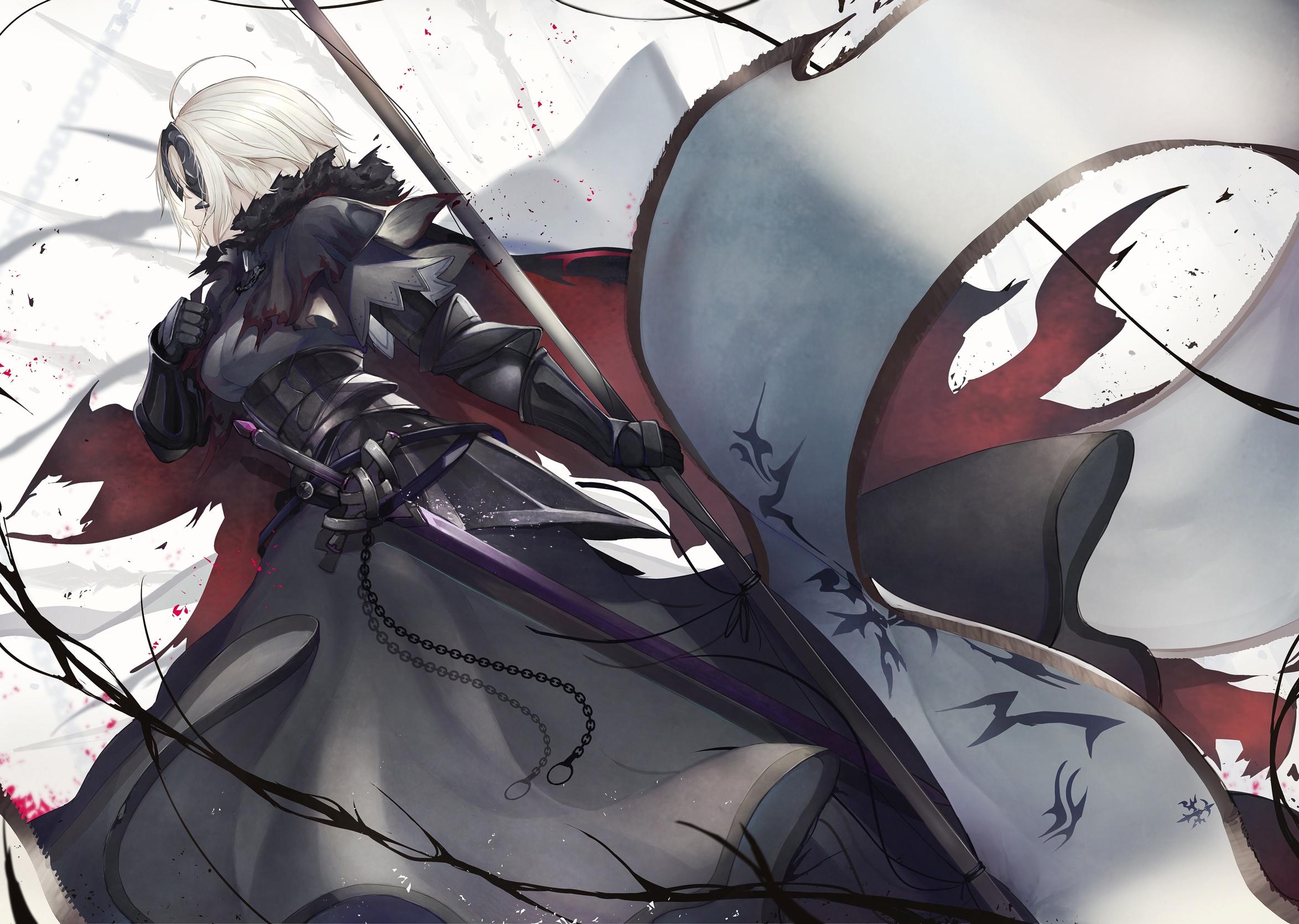

You can have a single weapon bonded to you at a time with this feature. If you attempt to bond with another weapon, you must break your bond with the other one.
The weapon stops being your shadowed weapon if you die, perform the 1-hour ritual on another weapon, or you perform the 1-hour ritual to break your bond to it.
Spellcasting
At 2nd level, you have learned to harness the innate magical talent that you possess and channel it to cast spells.
Spell Slots
The Dusksworn table shows how many spell slots you have to cast your duskworn spells of 1st level and higher. To cast one of these spells, you must expend a slot of the spell’s level or higher. You regain all expended spell slots when you finish a long rest.
For example, if you know the 1st-level spell earth tremor and have a 1st-level and a 2nd-level spell slot available, you can cast earth tremor using either slot.
Spells Known of 1st Level and Higher
You know three 1st-level dusksworn spells of your choice.
The Spells Known column of the Dusksworn table shows when you learn more dusksworn spells. Each of these spells must be of a level for which you have spell slots. For instance, when you reach 5th level in this class, you can learn one new spell of 1st or 2nd level.
Moreover, whenever you gain another level in this class, you can choose any number of dusksworn spells you know and replace them with spells from the dusksworn spell list, which also must be of a level for which you have spell slots.
Spellcasting Ability
Charisma is your spellcasting ability for your dusksworn spells, since the power of your dark magic relies on your ability to project your will onto the rest of the world. You use your Charisma whenever a spell refers to your spellcasting ability. Additionally, you use your Charisma modifier when setting the saving throw DC for a dusksworn spell you cast and when making an attack roll with one.
Spell Save DC
Spell attack modifier = your proficiency bonus +
Spellcasting Focus
You can use your shadowed weapon or a cursed item that you're attuned to as the focus for your dusksworn spells.
Sundering Shadow
Also when you reach 2rd level, your shadowed weapon deals an additional 1 necrotic damage when you score a hit with it. The necrotic damage dealt increases as you gain more levels in this class, as shown in the Shadow Damage column of the Dusksworn table.
Additionally, you gain darkvision out to a range of 60 feet if you don't already have darkvision from your race.
Dark Inheritance
At 3rd level, your malevolent will blossoms, causing your Sundering Shadow to affect more than the weapon bonded to you. You gain one of the following features of your choice.
Dusk-Infused Magic
You weave your infernal strength into your dusksworn spells. Add your Shadow Damage modifier to your dusksworn spell save DC and dusksworn spell attack modifier.
Mantle of the Wicked
Your Sundering Shadow manifests as a veil of darkness that surrounds you. As long as you are wearing armor and aren't wielding a shield, your Armor Class increases by an amount equal to your Shadow Damage modifier.
Shadow-Cursed Resilience
Whenever you take damage, subtract your Shadow Damage modifier from the amount of damage that is dealt to you.
Vile Tenacity
When you gain this feature, choose one ability score you don't have proficiency in saving throws with. You add your Shadow Damage modifier to any saving throws you make that use the chosen ability score.
Invoke Malice
Also at 3rd level, you gain the ability to channel your wicked might to fuel magical effects.
You start with three such options: one of your choice from the following options, and two additional options granted by your chosen Malefic Pledge. When you reach 13th level, and again at 17th level, you learn one additional Invoke Malice option from this feature.
Whenever you use your Invoke Malice, you decide which option you use. You must then finish a short or long rest to use your Invoke Malice again. Starting at 9th level, you can use your Invoke Malice twice between rests, regaining any expended uses when you finish a short or long rest.
Some Invoke Malice effects require saving throws. When you use such an effect, the DC equals your dusksworn spell save DC.
Invoke Malice Options
When you reach 3rd level, choose one of the options shown below to learn. When you gain another level as a dusksworn, you can replace one Invoke Malice option you know with this feature with another option you could learn with this feature.
Aura of Darkness. You can use a bonus action using your Invoke Malice to emanate an aura that eats away at the light around you for 1 minute. For the duration, any dim light that is within 30 feet of you becomes darkness and bright light in that same area becomes dim light instead.
You can end this effect on your turn as part of any other action. If you fall unconscious, this effect immediately ends.
Mortal Deliverance. You utter words of fear as an action, using your Invoke Malice. Each other creature within 30 feet of you that can see or hear you and is a humanoid, other than creatures of your choice, must make a Wisdom saving throw. A creature falls prone as it kneels in terror on a failed save.
A creature automatically succeeds if it is immune to being frightened, while a creature that's blinded, frightened, or that is missing at least half its hit points makes the saving throw with disadvantage.
Turn Divinity. As an action, you speak a vulgar curse using your Invoke Malice. Each other creature within 30 feet of you that can see or hear you and is a celestial takes 3d10 necrotic damage and must make a Wisdom saving throw. On a failed save, a creature is turned for 1 minute or until its hit points drop to less than half its maximum hit points.
A turned creature must spend its turns trying to move as far away from you as it can, and it cannot willingly move to a space within 30 feet of you. It also can’t take reactions. It can use only the Dash action or try to escape from an effect that prevents it from moving for its action. If there is nowhere to move, the creature can use the Dodge action.
Withering Command. You utter a word of withering as an action, using your Invoke Malice. Each other creature within 30 feet of you that is a plant must make a Constitution saving throw. On a failed save, a creature has disadvantage on all ability checks, attack rolls, and saving throws it makes for the next minute.
In addition, small, nonmagical plants within 30 feet of you that aren’t creatures, such as flowers and shrubs, wither and die instantly.
Word of Sacrilege. You utter a blasphemous incantation as an action, using your Invoke Malice. Each creature of your choice that you can see within 30 feet of you, isn't an undead or construct, and whose current hit points is equal to or less than twice your dusksworn level is rendered unconscious for 1 minute.
Malefic Pledge
When you reach 3rd level, you undertake a pledge that damns you forever as a dusksworn. Until now, you have only tasted a fraction of the power you wield. Now you must take a Malefic Pledge that's detailed at the end of the class description. The pledge you choose grants you features when you first choose it at 3rd level. It also grants you two additional Invoke Malice options, and additional features at 7th, 11th, 15th, and 20th level.
Pledge Spells
Each pledge has a list of spells associated with it. You gain access to these spells at the levels specified in the pledge's description. Pledge spells don't count towards your known spells. Once you gain access to a pledge spell, you always have that spell memorized.
When you gain a pledge spell that doesn’t appear on the dusksworn spell list or a malefic pledge feature teaches you a spell that doesn't appear on the dusksworn spell list, the spell is nonetheless a dusksworn spell for you.
Ability Score Improvement
When you reach 4th level, and again at 8th, 12th, 16th, and 19th level, you can increase one ability score of your choice by 2 or you can increase two ability scores of your choice by 1.
Extra Attack
Beginning at 5th level, you can attack twice, instead of once, whenever you take the Attack action on your turn. Moreover, when you take the Attack action on your turn, you can use your Ruinous Touch in place of one of the attacks you make with it.
When you reach 10th level, your martial prowess allows you to add your dusksworn spells to any sequence of attacks that you make. Whenever you take the Attack action on your turn, you can use your Ruinous Touch or cast a dusksworn spell you know of 1st level or higher with a casting time of 1 action in place of one of the attacks you make with it.
Aura of the Dark Scion
When you reach 6th level, the darkest emotions (despair or hatred, for instance) within yourself manifest as an aura that you emanate and other creatures can sense. You gain one of the following features of your choice.
Unless specified otherwise, the range of each aura is 10 feet, and increases to 20 feet at 13th level and to 30 feet at 18th level.
Aura of Contempt
When a hostile creature that's within the aura's range makes an attack roll against a creature other than you, that creature subtracts your Charisma modifier (with a minimum penalty of -1) from the attack roll, provided you're not incapacitated.
Aura of Despair
When a hostile creature that's within the aura's range must make a saving throw, the creature subtracts your Charisma modifier (with a minimum penalty of -1) from the saving throw. You must be conscious to grant this penalty.
Aura of Hopelessness
You constantly emanate an aura of terror that drains others of their hope, willpower, or other positive emotion. It extends 10 feet from you in every direction, but not through total cover.
If a creature is frightened, its speed is reduced to 0 while it is in the aura, and that creature takes necrotic damage equal to half your dusksworn level if it starts its turn there.
The range of this aura increases to 20 feet at 13th level and to 30 feet at 18th level.
Aura of Infirmity
When a hostile creature that's within the aura's range rolls damage dice, the creature subtracts your Charisma modifier (a minimum penalty of -1) and your proficiency bonus from the total rolled, potentially causing them to deal no damage. You must be conscious to grant this penalty.
Shadow Knight's Aura
When you reach 10th level, you manifest another aura as a symbol of your ever-growing dark power. You gain one of the following features of your choice. Alternatively, you can gain an aura from Aura of the Dark Scion that you do not already have instead.
Unless specified otherwise, the range of each aura is 10 feet, and increases to 20 feet at 13th level and to 30 feet at 18th level.
Aura of Admonition
When a hostile creature that's within the aura's range misses with an attack roll, that creature can't make any more attacks for the rest of the turn if you're conscious.
Aura of Dread
You radiate an aura of overwhelming negativity while you aren't incapacitated, which is also strong enough to suppress the emotions of others. The aura extends 10 feet from you in every direction, but not through total cover.
At the beginning of each of your turns, you can choose up to one hostile creature in the aura's area. That creature must succeed on a Wisdom saving throw or it becomes frightened of you until the beginning of your next turn, and it makes the saving throw with advantage if you targeted it with this aura during your previous turn. On a successful save, a creature can't be targeted with this aura again for the next 24 hours. The save DC of this feature equals your dusksworn spell save DC.
The range of this aura increases to 20 feet at 13th level and to 30 feet at 18th level.
Aura of Scorn
You emanate an aura of shadowy disdain. Whenever a hostile creature that's within the aura's range hits you with an attack, that creature takes necrotic damage equal to your Charisma modifier (minimum of 1) if you're not incapacitated.
Aura of Trepidation
Whenever a hostile creature that's within the aura's range makes an attack roll or subjects one or more creatures to make a saving throw with a spell or effect, it must a roll a d6 and subtract the result rolled from the attack roll or the save DC of the spell or effect. You must be conscious to grant this penalty.
Aura Improvements
When you reach 13th level, and again at 18th level, the range of your auras are increased.
Blasphemous Aegis
At 14th level, you are so empowered by your vile might that you are immune to disease and poison, cannot be charmed, and have resistance to bludgeoning, piercing, and slashing damage from nonmagical weapons.
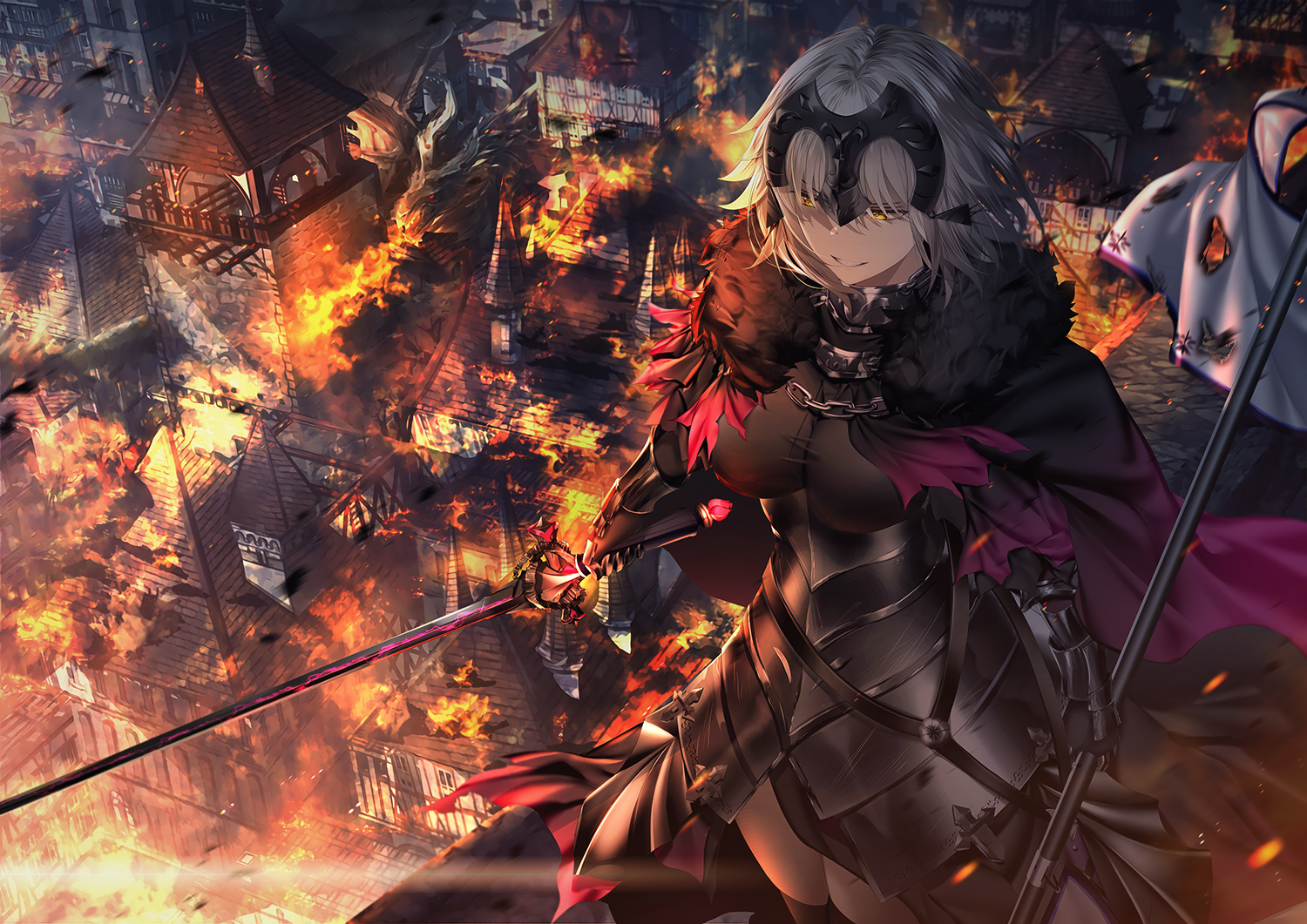

Dusksworn Spells
1st Level
- Bane
- Cause Fear
- Charm Person
- Command
- Compelled Duel
- Detect Evil and Good
- Detect Magic
- Earth Tremor
- Inflict Wounds
- Shield
2nd Level
- Blindness/Deafness
- Blur
- Crown of Madness
- Darkness
- Enthrall
- Find Steed
- Hold Person
- Locate Object
- Silence
- Suggestion
3rd Level
- Animate Dead
- Bestow Curse
- Dispel Magic
- Enemies Abound
- Erupting Earth
- Fear
- Haste
- Hypnotic Pattern
- Magic Circle
- Phantom Steed
- Remove Curse
- Revivify
- Sending
- Speak with Dead
- Vampiric Touch
4th Level
- Banishment
- Blight
- Charm Monster
- Compulsion
- Confusion
- Death Ward
- Evard's Black Tentacles
- Find Greater Steed
- Locate Creature
- Shadow of Moil
5th Level
- Antilife Shell
- Contagion
- Danse Macabre
- Destructive Wave (necrotic)
- Dominate Person
- Enervation
- Geas
- Hold Monster
- Negative Energy Flood
- Raise Dead
Malefic Pledge
Every dusksworn must eventually swear an accursed oath that awakens a malevolent will within them, unlocking the true extent of their unholy powers. Undertaking this pledge forever marks you a heretic and profaner of the living for as your soul exists — not even the afterlife can spare you from the consequences of the pledge you've taken. A few pledges are detailed here.
Saving Throws
Some Malefic Pledge features you gain as you gain more levels as a dusksworn force other creatures to make saving throws. The save DC for these features is the same as your dusksworn spell save DC.
Crownbreaker
A dusksworn that forever damns themselves with the pledge of a crownbreaker is one who forsakes their fealty to a deity, lord, or other sovereign. They abandon the law to do as they please, changing their own agenda as often as they breathe. These dusksworn have a natural inclination to defy majesty, steadfast in their resolve to act according to their own rules and desires.
Crownbreaker Principles
Crownbreakers typically (unknowingly) share the same set of core principles, while following the pledge's other precepts to varying degrees. This pledge places heavy importance on the freedom and independence of a dusksworn; no other precept is as paramount as a crownbreaker's ability to act as they will and express themselves without restraint.
Unfettered Individuality. Your freedom and the ability to express yourself is paramount. No compromises can be made to guarantee that you're free to act as your heart desires and if need be, you will ignore all other principles to achieve this.
Defy Authority. You are subservient to no one but yourself. The actions you take are of your own volition, never forced on you by others.
Law. The law is nothing more than a construct that exists to hold the weak in place. Do not be fettered by the shackles created by those who would inhibit your actions.
Responsibility. You must suffer the consequences of your actions accordingly, even if you ardently choose not to believe in the law or authority of others, or choose not to fulfill a duty or obligation you have undertaken. No matter how free you might be, you are not free from your actions' repercussions.
Pledge Spells
You gain pledge spells at the dusksworn levels listed.
Invoke Malice
When you take this pledge at 3rd level, you gain the following two Invoke Malice options.
Pledge Principles
Unlike paladins who conduct themselves and must do so in order to maintain their powers, principles serve more as a list of suggestions for the majority of dusksworn, outside of the game at least. You are not forced to abide by them, but if desired you can treat them as additional traits for your character.
Crownbreaker Spells
| Dusksworn Level | Spells |
|---|---|
| 3rd | Disguise Self, Silent Image |
| 5th | Invisibility, Mirror Image |
| 9th | Blink, Nondetection |
| 13th | Greater Invisibility, Phantasmal Killer |
| 17th | Mislead, Seeming |
Crownslayer's Strike. You can use your Invoke Malice to strike with contemptible lethality. When you score a hit with your shadowed weapon, you can use your Invoke Malice to turn the attack into a critical hit.
Scourgebringer's Concealment. You can use your Invoke Malice as a bonus action to conceal your presence, becoming invisible for the next minute. The invisibility ends early if you cast a spell or after making two attacks while you're invisible.
Thronebreaker's Strike
Beginning at 3rd level when you first choose this pledge, you know how to strike with underhanded malevolence. Once on each of your turns, when you score a hit with your shadowed weapon and have advantage on the attack roll, you score a critical hit with it on a roll of 19 or 20.
You don't need advantage on the attack roll if the target was subjected to your Ruinous Touch this turn or another enemy of the target is within 5 feet of it, that enemy is not incapacitated, and you don't have disadvantage on the attack roll.
The number rolled in order to score a critical hit using this feature decreases as you gain more levels as a dusksworn, as shown in the Thronebreaker Critical table.
Moreover, armor you wear no longer imposes disadvantage on Dexterity (Stealth) checks that you make.
Thronebreaker Critical
| Dusksworn Level | Critical Range |
|---|---|
| 3rd — 7th | 19 — 20 |
| 8th — 12th | 18 — 20 |
| 13th — 17th | 17 — 20 |
| 18th — 20th | 16 — 20 |
Aura of the Crownslayer
Beginning at 7th level, you emanate an aura of unease and dread. Each hostile creature within 10 feet of you subtracts half of your Charisma modifier, rounded up, from their Armor Class (minimum of -1 Armor Class). You must be conscious to grant this penalty.
The range of this aura increases to 20 feet at 13th level and 30 feet at 18th level.
Crownbreaker's Shadow
When you reach 11th level, when you subject a creature to your Thronebreaker's Strike, the target takes an additional 2d6 necrotic damage. The extra damage dealt increases to 4d6 at 20th level.
Additionally, attacks with your shadowed weapon score a critical hit on a roll of 19 or 20, even without the benefits of your Thronebreaker Strike active.
Mantle of the Forsaker
Beginning at 15th level, whenever you score a critical hit with your shadowed weapon, you become invisible until the end of your next turn, which ends early if you make an attack or cast a spell.
Moreover, while you're invisible (through a feature, item, or spell, for instance), you're under the effects of a nondetection spell and you can use an action to teleport up to 30 feet away in an unoccupied space that you can see.
Treacherous Ascendant
At 20th level, you have reached the apex of your perfidious might. You gain the following benefits, appropriate for your treacherous nature.
Duplicitous Deception. You can cast mislead without expending a spell slot and without requiring concentration. Once you do so, you must finish a short or long rest before you can do so again.
Moreover, when you cast mislead (with this feature or with a spell slot), it creates three illusory doubles of you instead of one, which can be dismissed at any time (one at a time or all at once, no action required). All of the doubles appear where you are standing. Whenever you use an action to instruct one of the doubles, you can instruct all three at once instead.
Treacherous Strike. If you're hidden whenever you make an attack with your shadowed weapon, you do not give away your location.
Hellfire Knight
Hellfire knights are dusksworn who surrender themselves to the fires of eternal damnation in exchange for mastery of fire. Their shadowed weapons are always trailed by black flames that snuff out those who cross paths with them, whether the dusksworn desires it or not. Often, dusksworn who take this pledge meet fiery ends, consumed by the malefic pledge they undertook.
Hellfire Knight Principles
The principles of a hellfire knight vary by dusksworn, but all the principles revolve around burning brightly, for as long as possible. Some hellfire knights of the past may also follow a precept that calls for the world to be set ablaze, be it literally or figuratively.
Consumed by the Inferno. By fire you will persevere, and by fire you will perish.
Flame of Ambition. Fire both guides you and follows you as you journey onwards. If the flame within you is snuffed, it will all be for naught.
Set the Seas Ablaze. The flame you possess will devour all that are in the path you have treaded. Even the stars will be set aflame once you reach their heights.
Pledge Spells
You gain pledge spells at the dusksworn levels listed.
Hellfire Knight Spells
| Dusksworn Level | Spells |
|---|---|
| 3rd | Hellish Rebuke, Searing Smite |
| 5th | Heat Metal, Scorching Ray |
| 9th | Fireball, Melf's Minute Meteors |
| 13th | Fire Shield, Wall of Fire |
| 17th | Flame Strike*, Immolation |
- Flame Strike*: The spell deals necrotic damage, instead of radiant damage, when you cast it as a dusksworn spell.
Invoke Malice
When you take this pledge at 3rd level, you gain the following two Invoke Malice options.
Hellfire Weapon. As a bonus action, you can imbue your shadowed weapon with malevolent energy, using your Invoke Malice. For the next minute, whenever you hit a creature with your shadowed weapon, they also take necrotic damage equal to your Charisma modifier (a minimum of 1 damage).
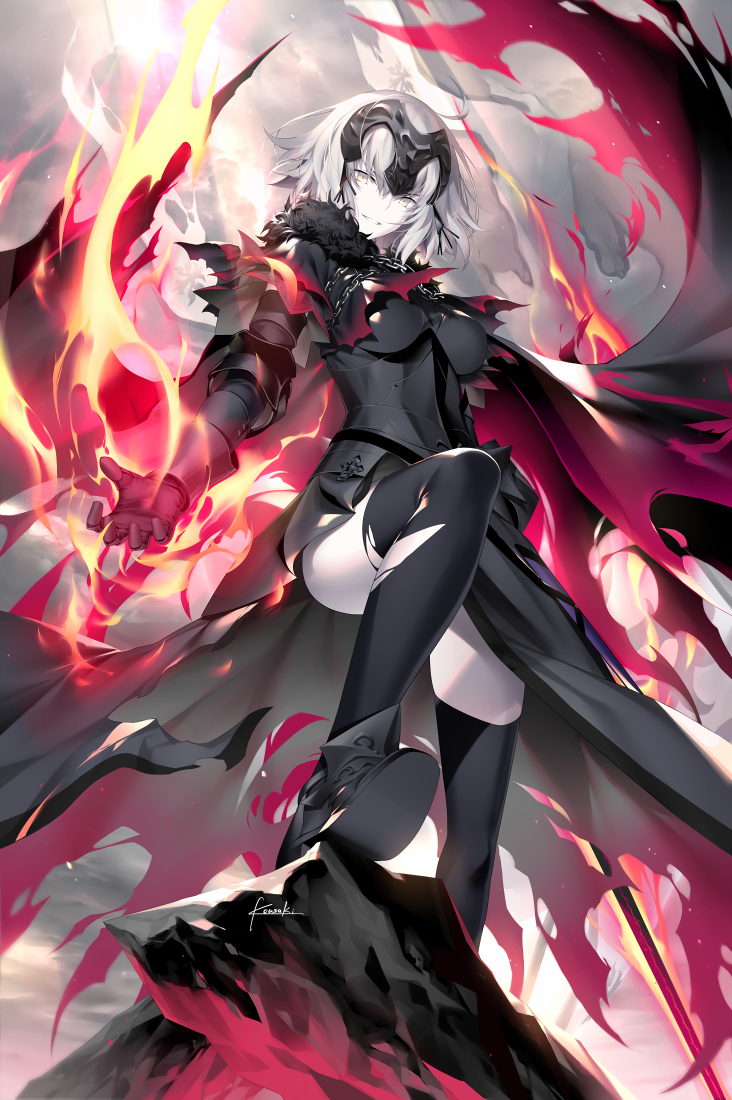

Your shadowed weapon also sheds bright light in a 5-foot radius and dim light 15 feet beyond that for the duration. If the weapon isn't already magical, it becomes magical for the duration.
You can end this effect on your turn as part of any other action. If you fall unconscious, this effect immediately ends.
Smoldering Pressure. As a bonus action, you can briefly radiate intense heat, using your Invoke Malice. For the next minute, you have resistance to cold damage, and each hostile creature within 30 feet of you loses resistance to fire damage.
You can end this effect on your turn as part of any other action. If you fall unconscious, this effect immediately ends.
Searing Shadows
Starting at 3rd level when you first choose this pledge, you can change all of the necrotic damage that is dealt by your shadowed weapon or Ruinous Touch to fire damage when you deal damage to a creature using either of them.
In addition, whenever you score a hit with your shadowed weapon, you can change all of the fire damage that would be dealt to necrotic damage instead.
Additionally, you learn flame blade. It doesn't count against the number of dusksworn spells you know, and you can cast it once without expending a spell slot. Once you cast it this way, you can't cast it again this way until you finish a long rest. You can also cast it using a spell slot you have of the appropriate level.
Lastly, while you're under the effects of a flame blade spell, you gain the following benefits.
Favored Spell. Whenever you cast flame blade, you don't require concentration.
Instantaneous Summons. You can evoke the blade at any time on your turn (no action required) or as part of an attack while you aren't wielding a weapon that has the two-handed property, and can dismiss it at any time (no action required).
Umbral Flame. Whenever you score a hit with the blade, you can change the damage type of any of the blade's d6s to necrotic damage.
Aura of Hellfire
When you reach 7th level, you gain resistance to fire damage. Moreover, whenever a hostile creature within 10 feet of you is dealt damage, the creature takes additional fire damage equal to your Charisma modifier (a minimum of 1 damage).
A hostile creature only takes the additional fire damage if you're conscious and from only one Aura of Hellfire at a time.
The range of this aura increases to 20 feet at 13th level and 30 feet at 18th level.
Additionally, your growing mastery over fire provides you with more benefits while you're under the effects of a flame blade spell.
Multiattack. Whenever you take the Attack action on your turn, you can replace one of the attacks with an attack using the blade created with the spell. If the blade isn't in your hand and you have a free hand available, you can evoke it as part of that attack if you are wielding a weapon that doesn't have the two-handed property.
Incinerating Shadow
Starting at 11th level, your shadowed weapon is infused with baleful flame; if a creature would be killed by your shadowed weapon, Ruinous Touch, or Aura of Hellfire, you can turn the creature to ash. Additionally, your shadowed weapon deals an additional 1d6 fire or necrotic damage (your choice when you hit) whenever you score a hit with it, and the fiery blade that's created by you with a flame blade spell gains the following bnefits.
Shadowed Weapon. A creature hit with the blade takes additional necrotic damage equal to your Shadow Damage modifier. Moreover, a creature killed with it is turned to ash.
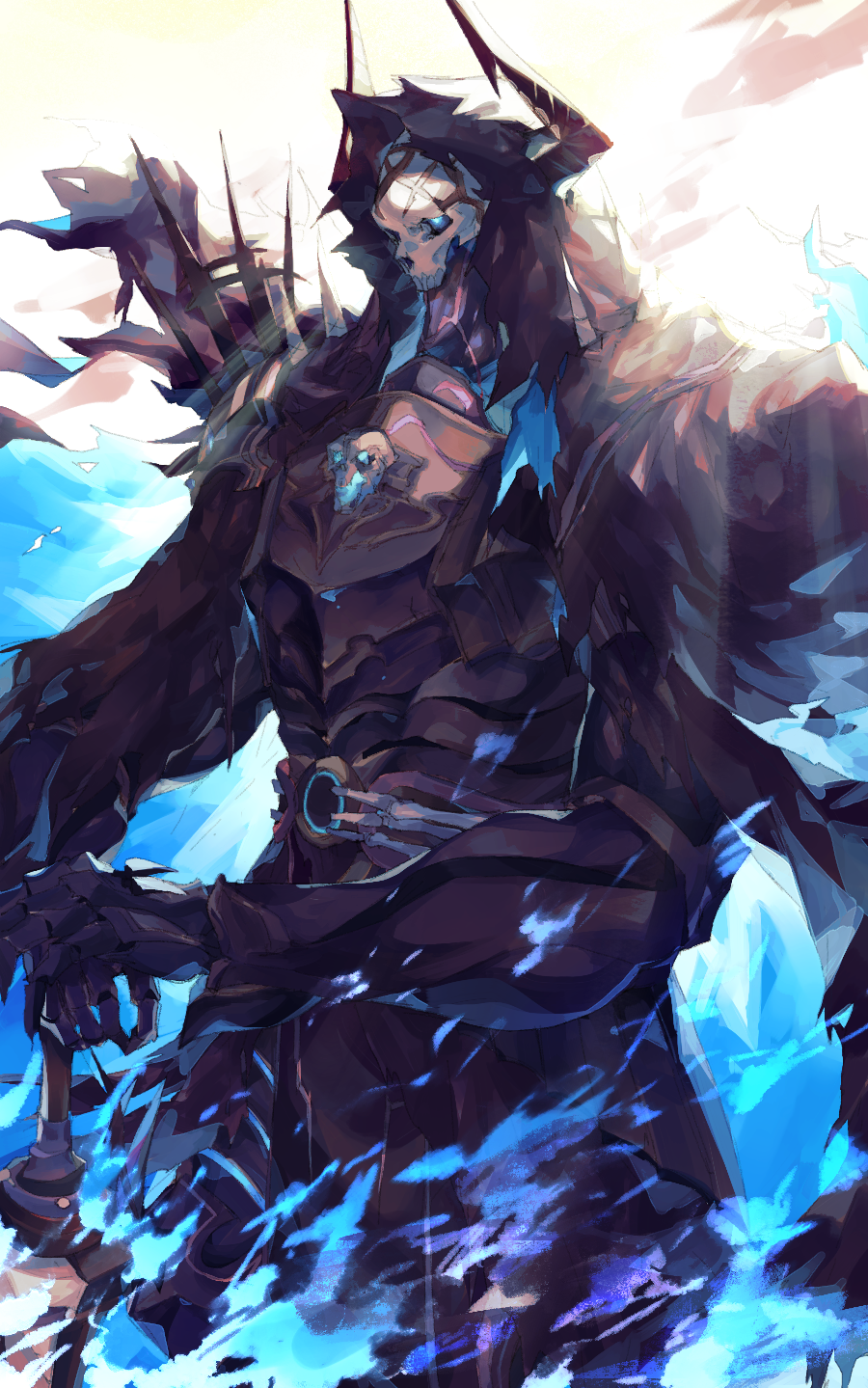

Ruinous Malefactor
When you reach 15th level, you're always under the effects of the flame blade spell. The fiery blade that is created with it is always under the effects of your Hellfire Knight features.
When you reach 20th level, the fiery blade you create is always evoked as though flame blade was cast at 4th level.
Fiery Desecration
At 20th level, you have reached the apex of your fiery might. You learn fire storm, befitting of your mastery over fire. It doesn't count against the number of dusksworn spells you know, and you can cast it without expending a spell slot. You must finish a long rest before you can do so again. Moreover, it gains the following benefits when you cast it this way.
Calamitous Storm. Whenever you cast this spell, you can change the damage type of any number of the spell's d10s to necrotic damage, instead of fire damage.
Flame of Demise. The spell ignores resistance to fire and necrotic damage, and deals half as much fire and/or necrotic damage, instead of no damage, to creatures and objects with immunity to fire and/or necrotic damage.
Ruinous Flames. A hostile creature killed by the spell is turned to ash. In addition, the spell deals no damage to you.
Additionally, your shadowed weapon and the blade you create with a flame blade spell gains the following benefit:
Razing Weapon. Your shadowed weapon and the flaming blade ignore resistance to fire and necrotic damage and deal half as much damage, instead of no damage, to creatures and objects that are immune to fire and/or necrotic damage.
Lichblade
Lichblades are perhaps the most profane of all dusksworn, natural necromancers who command the dead to rise and obey their every command when called upon. They are the most persistent of dusksworn, predisposed to living longer than others of their kind by draining the vitality of others.
Lichblade Principles
The principles of lichblades are etched in bone and stored in graves long forgotten, an indecipherable code to those who do not tread this path or have yet to descend into depravity.
Seek Eternity. You desire immortality above all else. You will outlast those who have scorned you.
No Sin is Too Great. You will pay any price, commit any sin necessary, to achieve your goals. Your evil deeds and the trail of corpses you have raised shall be a testament to your devotion.
Corpse Grinder. Many hands make for light work. With the power bestowed upon you, any corpse laid bare before you will ease your burden and serve a greater purpose.
Destined for Hell. The path you walk is paved with sin and choices that others would never dare to make. In death, your soul will rot for eternity until someone else as wicked as you claims your corpse for their own devious purposes.
Pledge Spells
You gain pledge spells at the dusksworn levels listed.
Lichblade Spells
| Dusksworn Level | Spells |
|---|---|
| 3rd | False Life, Inflict Wounds |
| 5th | Gentle Repose, Ray of Enfeeblement |
| 9th | Life Transference, Spirit Shroud |
| 13th | Blight, Death Ward |
| 17th | Danse Macabre, Enervation |
Invoke Malice
When you take this pledge at 3rd level, you gain the following two Invoke Malice options.
Ravenous Weapon. As a bonus action, you can imbue your shadowed weapon with a ravenous hunger, using your Invoke Malice. For the next minute, the first time you hit a creature that isn't an undead or construct with it on each of your turns, you regain 1d6 + your Charisma modifier (a minimum of 1d6 + 1) hit points.
You can end this effect on your turn as part of any other action. If you fall unconscious, this effect immediately ends.
Sacrilegious Call. As an action, you cast animate dead, using your Invoke Malice. After 24 hours pass, an undead created with the spell when it's cast this way disintegrates, instead of no longer obeying your orders.
Profaner's Initiation
When you first choose this pledge at 3rd level, marking the beginning of your wicked descent, you learn animate dead. The spell doesn't count against the number of dusksworn spells you know.
Additionally, to further your sacrilegious descent, you learn three cantrips: spare the dying, thaumaturgy, and your choice of either chill touch or toll the dead.
Whenever you gain another level as a dusksworn, you can change the third cantrip that's learned with this feature with the other cantrip.
Aura of Unlife
Beginning at 7th level, hostile creatures within 10 feet of you can't regain hit points or gain temporary hit points as long as you are conscious.
Additionally, whenever you create an undead with a spell within the aura's range, the creature's hit point maximum is increased by an amount equal to your dusksworn level.
The range of this aura increases to 20 feet at 13th level and 30 feet at 18th level.
Sacriligeous Shadow
Starting at 11th level, your shadowed weapon is empowered with profane strength. Whenever you kill a creature with your shadowed weapon or your Ruinous Touch, you can use your bonus action to cast animate dead without expending a spell slot, targeting only that creature's corpse. Once you do so, you must finish a short or long rest before doing so again.
Moreover, once per turn when you kill a creature with your shadowed weapon or your Ruinous Touch, you also regain hit points equal to twice your Charisma modifier (a minimum of 2 hit points). Whenever you regain hit points this way, you can also expend up to 2 ruin dice to roll them. Add the total result of the dice rolled to the amount of hit points that you regain.
Accursed Lord
At 15th level, your necromantic familiarity provides you with depraved abilities. You gain the following benefits.
Death's Messenger. You can cast speak with dead at will, without expending a spell slot.
Revolting Mastery. You can cast animate dead without expending a spell slot. You must finish a short or long rest before you can do so again.
Wicked Ascension. When you cast animate dead, you can target up to two additional corpses or piles of bones, creating that many additional zombies or skeletons, as appropriate.
Everlasting Evil
When you reach 20th level, your necromantic might sustains you so that you gain the following benefits.
Ageless Body. You suffer none of the frailty of old age and can’t be aged magically. You can still die of old age, however. In addition, you no longer need food or water.
Spellcasting. You learn finger of death. It doesn't count against the number of dusksworn spells you know, and you can cast it without expending a spell slot. You must finish a long rest before you can do so again.
Unholy Endurance. Whenever you finish a long rest, you gain the effects of the death ward spell. Whenever you gain the effects of death ward this way, it lasts until ended by its own effect or you finish another long rest. Whenever a death ward that is affecting you ends by its own effect, you gain 30 temporary hit points.
Mindscourge
Mindscourges are dusksworn who wield both dark magic and psionics at once. They wander aimlessly, laying waste to both the bodies and minds of enemies who cross their path, doing whatever it takes to make it to the end of another day.
Mindscourge Principles
The principles of a mindscourge are etched into their mind, an eternal reminder of the pledge they have taken.
Strength Above All. You would stand above all others that enter your presence until you are felled by someone mightier. To be bested by another is a grievous slight.
Mind Over Matter. Your body is but a vessel to fulfill your will. As long as your mind and soul remain intact and in one piece, you can take another step forward.
Actions Above Words. Strive to be known by the actions you take, rather than the words you speak. Show the world and those around you the terror you can inflict, rather than express what you can do.
Pledge Spells
You gain pledge spells at the dusksworn levels listed.
Invoke Malice
When you take this pledge at 3rd level, you gain the following two Invoke Malice options.
Mindburst. As an action, you can blast a creature you can see or are aware of within 90 feet of you with psychic energy, using your Invoke Malice. The target must succeed on an Intelligence saving throw or fall unconscious for 1 minute as its mind is overwhelmed by your psychic might focused on it. It returns to consciousness early when it is dealt damage or someone uses their action and makes a successful Strength check against your spell save DC to shake it awake.
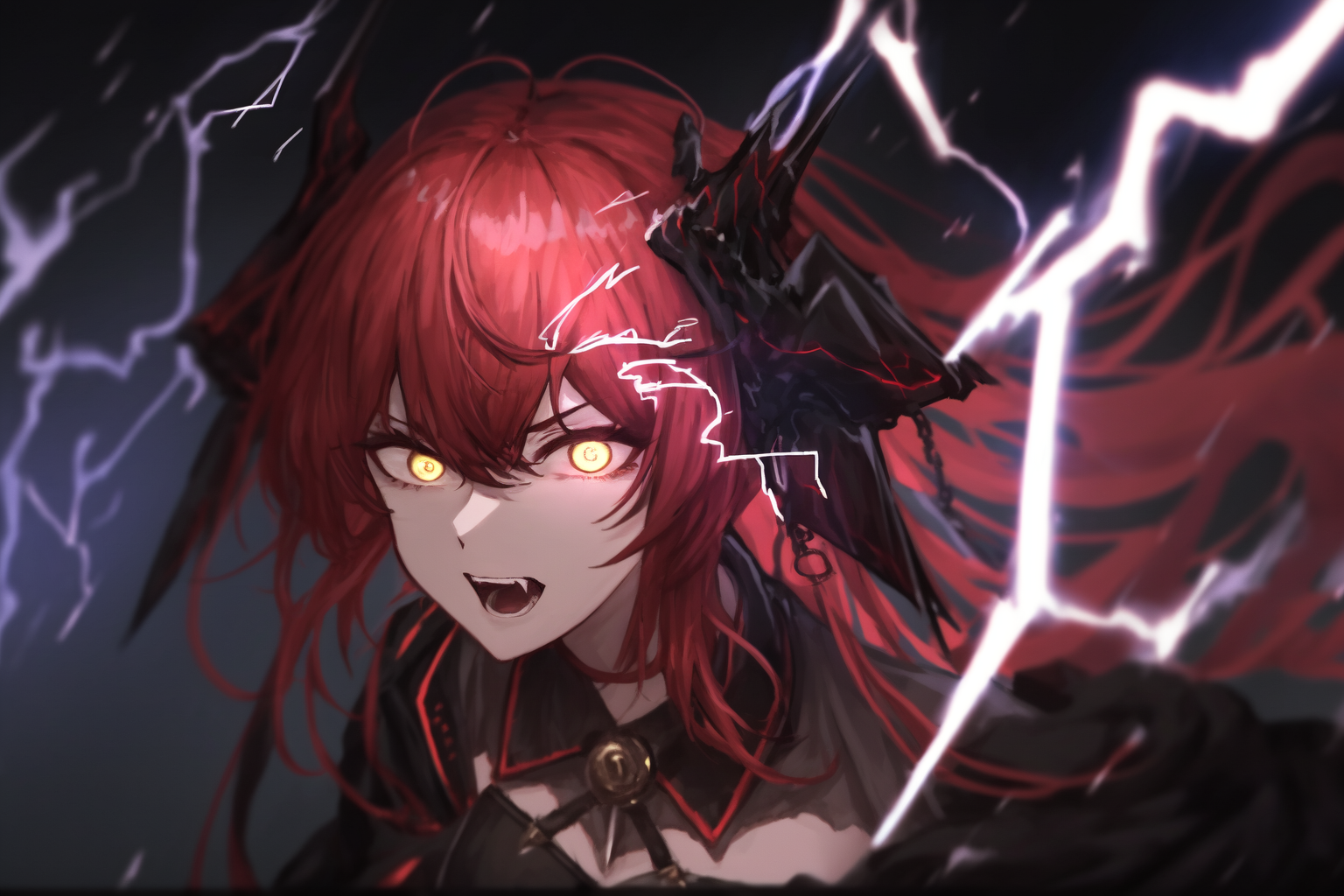

Mindscourge Spells
| Dusksworn Level | Spells |
|---|---|
| 3rd | Sleep, Tasha's Hideous Laughter |
| 5th | Detect Thoughts, Mind Spike |
| 9th | Hypnotic Pattern, Major Image |
| 13th | Hallucinatory Terrain, Raulothim's Psychic Lance |
| 17th | Synpatic Static, Telekinesis |
Stunning Blast. When you take the Attack action on your turn, you can replace one of the attacks you make with a blast of psychic energy, using your Invoke Malice. Each creature in a 15-foot cone must make an Intelligence saving throw. On a failed save, a creature is stunned for 1 minute. A creature can repeat the saving throw at the end of each of its turns, ending the effect on itself on a success.
Mindwrack
Starting at 3rd level when you first choose this pledge, you can change all of the necrotic damage that would be dealt by your Ruinous Touch to psychic damage whenever you would deal damage to a creature with it.
Additionally, you learn how to use your newfound psychic power to send those you touch reeling from mental lethargy. Whenever you subject a creature to your Ruinous Touch, the target must succeed on an Intelligence saving throw or it is stunned until the end of your next turn. A creature that has an Intelligence score of 4 or less isn’t affected by this feature.
Aura of Blanking
Starting at 7th level, you emit a psychic aura that interferes with the minds and thoughts of those around you. When a hostile creature within 5 feet of you takes a reaction, that creature must succeed on an Intelligence saving throw or waste the reaction doing nothing as its mind momentarily lapses, causing it to forget what it was doing, instead. You must be conscious for creatures to make the saving throw when they take a reaction.
The range of this aura increases to 10 feet at 13th level and 15 feet at 18th level.
Tormenting Shadow
At 11th level, when you hit a creature with your shadowed weapon or use your Ruinous Touch against a creature, that creature takes an additional 1d4 psychic damage and must make an Intelligence saving throw.
On a failed save, that creature can't take a reaction until the end of its next turn. Moreover, on its next turn, it must choose whether it gets a move, an action, or a bonus action; that turn, it gets only one of the three. On a successful save, they suffer from none of this feature's effects until the beginning of your next turn, but still take additional psychic damage from your shadowed weapon and Ruinous Touch as normal.
Mindstorm
Starting at 15th level, you have resistance to psychic damage and regain half of your ruin dice whenever you finish a short rest, but no more than the amount of expended ruin dice you have.
In addition, whenever you subject a creature to the effects of the Mindwrack feature with your Ruinous Touch, you can expend two additional ruin dice; when you do so, any number of other creatures of your choice you can see or are aware of within 20 feet of you must succeed on an Intelligence saving throw or be stunned until the end of your next turn.
A creature that has an Intelligence score of 4 or less is not affected by this feature.
Psionic Mastery
When you reach 20th level, your psychic talent has reached its limit. You ignore psychic resistance and deal half damage, instead of no damage, to creatures with immunity to psychic damage.
Moreover, when you take the Attack action on your turn, you can replace one of the attacks you make with a use of your Mindwrack without expending ruin dice. The target takes no damage, nor can you use the Mindstorm feature when you do so. You must still be able to touch the target.
Lastly, at the end of each of your turns, you can unleash your psychic strength upon a creature that you can see or are aware of within 30 feet of you that's stunned. The target must succeed on an Intelligence saving throw or take 3d10 psychic damage.
Rimebound
Rimebound are dusksworn that complement their dark might with the use of magic that sends chills through their enemies. The air that surrounds one of them is unnaturally numbing, and their weapon and vile touch leave behind lifeless frozen sculptures.
Rimebound Principles
The principles of a rimebound are preserved in the frozen husks left in their wake. All other life will slow to a glacial crawl in their wake, or face a chilling death.
Douse the Flame of Hope. Merely defeating an enemy is not enough. You must brutalize the enemy and frighten them, dousing the flame of ambition. Shock them with more than death — the frozen statues left in your wake will shatter the resolve of any who would stand against you.
Patience. Time marches on slowly, and so too does your icy strangehold over your surroundings. With enough time, you can halt the gods and even the world itself, leaving you with a glacial paradise that reaches as far as your eyes can see.
Hone Oneself. You must work on and perfect your body so it is unblemished like the frozen statues that you leave behind and discipline your mind so that it is as unyielding as glaciers, that slowly and surely move onward.
Pledge Spells
You gain pledge spells at the dusksworn levels listed.
Rimebound Spells
| Dusksworn Level | Spells |
|---|---|
| 3rd | Create or Destroy Water, Frost Fingers |
| 5th | Gust of Wind, Rime's Binding Ice |
| 9th | Sleet Storm, Tidal Wave |
| 13th | Control Water, Ice Storm |
| 17th | Cone of Cold, Maelstrom |
Invoke Malice
When you take this pledge at 3rd level, you gain the following two Invoke Malice options.
Glacial Binding. As an action, you can use your Invoke Malice to unleash a wave of bitter cold, emanating from you. Each creature of your choice that you can see within 15 feet of you must make a Constitution saving throw. On a failed save, a creature is hindered by ice formations for 1 minute, or until it or another creature within reach of it uses an action to break away the ice. A creature hindered by ice has its speed reduced to 0.
Rime's Call. As an action, you can use your Invoke Malice to summon freezing rain and sleet. Your surroundings, in a 30-foot area centered on you, are covered in ice and debris, making it difficult terrain for creatures other than you, and exposed fires in the area are doused. The terrain returns to normal after 10 minutes.
Hoarfrost's Touch
Starting at 3rd level when you first choose this pledge, your Ruinous Touch sends bitter cold down the spines of those you harm with it. Whenever you deal damage to a creature with your Ruinous Touch, that creature must succeed on a Constitution saving throw or its speed is reduced to 0 until the end of its next turn. On a failed or successful save, that creature can't make opportunity attack against you this turn.
Moreover, whenever you would deal damage to a creature with your Ruinous Touch, you can change all of the necrotic damage that would be dealt to cold damage instead.
Aura of Winter's Wrath
Beginning at 7th level, the speed of each hostile creature that starts their turn within 10 feet of you or moves within 10 feet of you during their turn is reduced by 15 feet until the end of their turn, as an eerie cold permeates your surroundings. You must be conscious in order to grant this penalty.
The range of this aura increases to 20 feet at 13th level and 30 feet at 18th level.
Glacial Shadow
When you reach 11th level, your shadowed weapon is imbued with piercing cold. Whenever you hit a creature with it, they take an additional 1d4 cold damage and must succeed on a Constitution saving throw or their speed is halved and they can't take a reaction until the end of their next turn, as numbing cold sets in. On a successful save, they suffer from none of this feature's effects until the beginning of your next turn, but still take additional cold damage from your shadowed weapon as normal.
Moreover, whenever creature is killed with your shadowed weapon or Ruinous Touch, it becomes a frozen statue until it thaws.
Rime's Step
Beginning at 15th level, you are always under the effect of a water walk spell. Moreover, your movement is unaffected by difficult terrain and your speed can't be reduced by spells or magical effects.
Additionally, you can intensify the effect of your Aura of Winter's Wrath for a short time as a bonus action. For the next minute, the aura's range is doubled, and the speed of creatures affected by it are halved instead of reduced by 15 feet. A creature whose speed would be reduced by less than 15 feet this way has their speed reduced by 15 feet instead.
Once you use this feature, you can't use it again until you finish a short or long rest. While you have no uses available, you can expend 3 ruin dice to use it again.
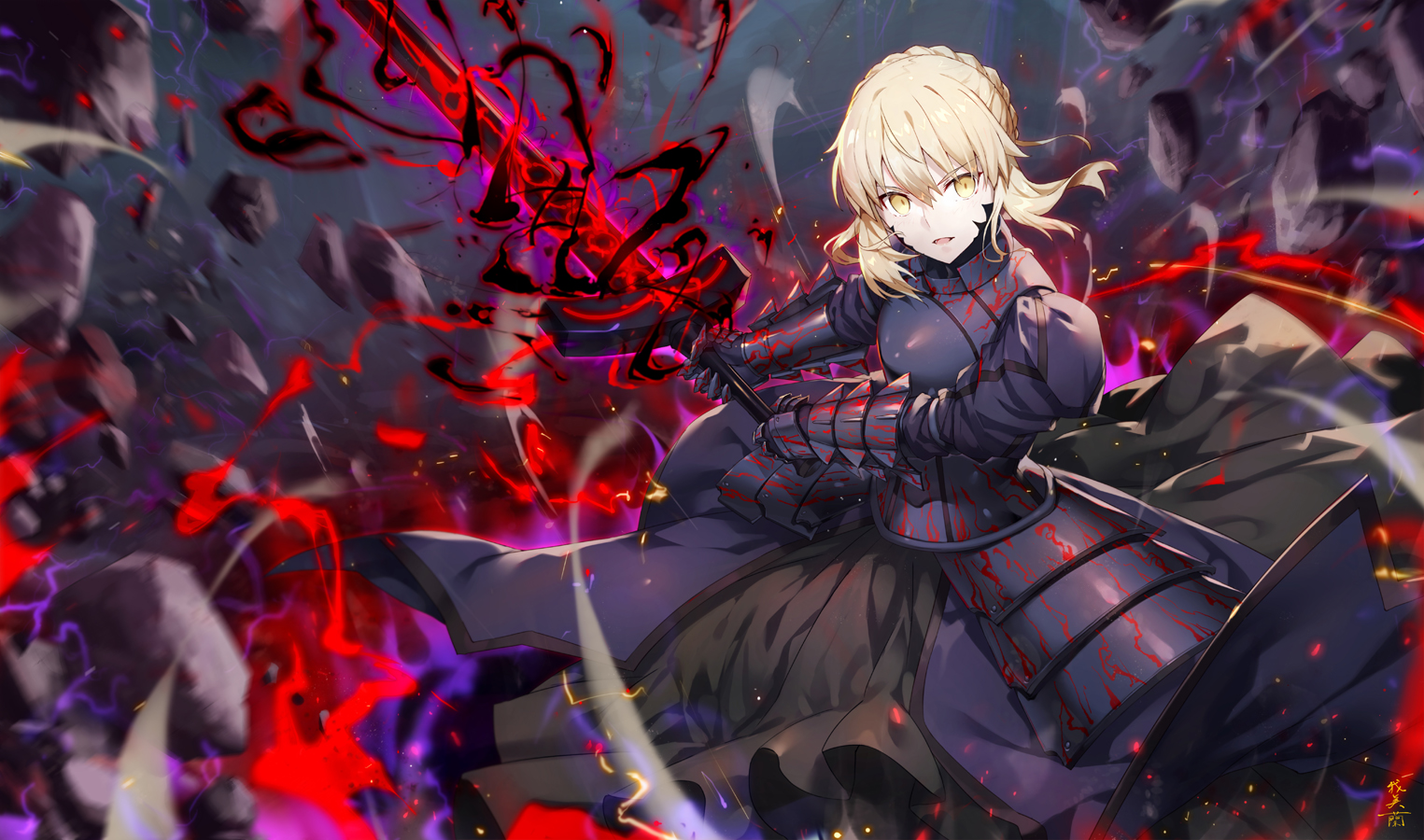

Frozen Apex
When you reach 20th level, appropriate for your mastery over the freezing cold, you learn the spells otiluke's freezing sphere and wall of ice. They don't count against the number of dusksworn spells you know and you can cast each of them without expending a spell slot. Once you cast a spell this way, you can't cast that spell again until you finish a long rest.
In addition, your Aura of Winter's Wrath is bolstered even more. The range bonus to the aura from Rime's Step is now permanent, and any fire damage that is dealt to a creature or object in the aura's range is halved unless its source ignores resistance or immunity to fire damage a creature or object has.
Lastly, using the aura enhancement from Rime's Step now doubles the range of your other Dusksworn auras, in addition to halving the speed of hostile creatures affected by your Aura of Winter's Wrath, for its duration.
Shadow Thane
Shadow thanes are dusksworn who focus on wielding the shadowed weapon they have bonded with, rather than the magic that they are capable of utilizing.
Shadow Thane Principles
Unlike other pledges whose principles promote selfishness or other sinful behavior, the principles of a shadow thane are for the betterment of oneself and less concerned about wreaking havoc in order to achieve personal goals.
Shadow Thane Spells
| Dusksworn Level | Spells |
|---|---|
| 3rd | Cause Fear, Wrathful Smite |
| 5th | Darkness, Hold Person |
| 9th | Fear, Haste |
| 13th | Shadow of Moil, Staggering Smite |
| 17th | Banishing Smite, Dominate Person |
Discipline. You must keep both your blade sharpened and mind steeled in order to survive. Hone your body and soul so that you can face your problems head on.
Act With an Iron Resolve. Tolerate no dissent. Your word is law, and refusal is met with the appropriate punishment.
Loyalty. Each word you speak is with purpose and resolve. Without it, you are no better than other dusksworn who have resorted to underhanded tactics and schemes.
Honor. Treat others with honor and respect. You refuse to stoop as low as those who belittle you, unlike your brethren.
Pledge Spells
You gain pledge spells at the dusksworn levels listed.
Invoke Malice
When you take this pledge at 3rd level, you gain the following two Invoke Malice options.
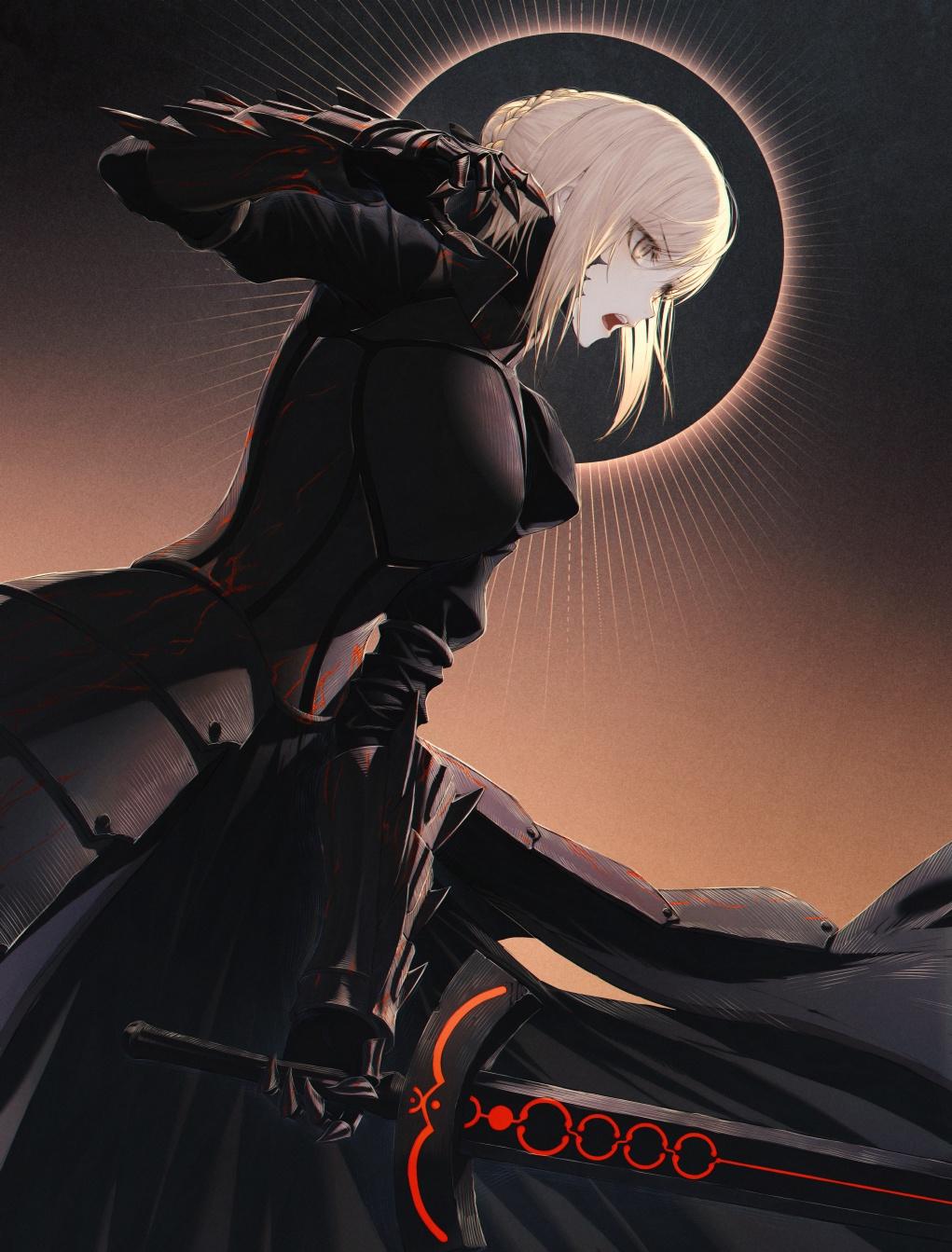

Dreadful Aspect. As an action, you channel the darkest emotions lingering within yourself and focus them into a burst of overwhelming magical energy, using your Invoke Malice. Each creature of your choice within 30 feet of you must make a Wisdom saving throw if it can see you. On a failed save, a creature is frightened of you for 1 minute. When a creature frightened by this effect ends its turn more than 30 feet away from you, it can attempt another Wisdom saving throw to end the effect on it.
Magical Recovery. As a bonus action, you can regain spent magical energy by channeling the darkness that dwells inside you, using your Invoke Malice. You regain one expended spell slot with a level that is equal to or less than one third of your dusksworn level (rounded up).
Diabolical Smite
Beginning at 3rd level, you can use your bonus action while it's your turn to expend a spell slot of 1st level or higher and infuse your shadowed weapon with fiendish might until the end of your turn. The next time you hit a creature with your shadowed weapon this way, the creature takes extra necrotic damage in addition to the weapon's damage and the infusion ends. The additional damage is 2d10 for a 1st-level spell slot, plus an additional 1d10 for each spell level higher than 1st, to a maximum of 6d10.
Alternatively, you can expend up to three ruin dice instead of a spell slot. When you do so, the additional damage equals the ruin dice expended; for instance, if you expend three ruin dice that are d6s, the additional damage on a hit is 3d6.
Aura of Malevolence
Starting at 7th level, you have resistance to necrotic damage. Additionally, hostile creatures that are within 10 feet of you lose resistance to necrotic damage and have disadvantage on saving throws that they make to avoid being frightened of you while you are conscious.
The range of this aura increases to 20 feet at 13th level and 30 feet at 18th level.
Greater Sundering Shadow
At 11th level, your shadowed weapon is infused with even greater malevolent darkness; when you hit a creature with your shadowed weapon, the creature is dealt an additional 1d8 necrotic damage.
Doomscourge
When you reach 15th level, you are capable of using your Diabolical Smite without expending a spell slot or ruin die. When you use it this way, your shadowed weapon deals an additional 3d10 necrotic damage on a hit. You can do so a number of times equal to your proficiency bonus, regaining expended uses when you finish a long rest. Whenever you finish a short rest, you also regain 2 expended uses of this feature.
Additionally, you deal half as much necrotic damage with your shadowed weapon, instead of no damage, to creatures and objects with immunity to necrotic damage, fueled by an all-consuming darkness that hungers for ruination.
Devouring Darkness
When you reach 20th level, you gain two special spell slots — one each of 4th level and 5th level. You can only expend these two spell slots to fuel your Diabolical Smite.
In addition, you have immunity to necrotic damage and whenever you kill a creature with your shadowed weapon that's infused with your Diabolical Smite, its soul is ravaged and nothing short of divine intervention can restore it to life. If the expended spell slot was of 4th level or higher, not even divine intervention can restore a soul destroyed this way.
Changelog
1.0.1
Base Class
- [Flavor only] Added a noteblock on page 1 that provided alternative, setting agnostic names for the class's name.
- Saving throw proficiencies changed from Strength and Charisma to Constitution and Charisma.
- Invoke Malice options that affect a single type of creature now specify that they affect creatures (most relevant to Withering Command affecting plants, creatures or not).
- Extra Attack feature restricts the spells you can cast as part of the Attack action to dusksworn spells of 1st level or higher (specifically to lock out cantrips from the Lichblade malefic pledge).
- Aura of the Dark Scion now lets you pick from 4 different auras.
- 10th level feature name changed and allows you to pick from 4 different auras or one of the Auras from Aura of the Dark Scion.
- Aura Improvements now occurs at both 13th and 18th level instead of only once at 18th level (normal range > doubled range > tripled range).
Crownbreaker
- Slightly altered critical range level scaling.
- Armor Class penalty from Aura of the Crownslayer is now half of your Charisma modifier rounded up (min -1), range increased to 10/20/30 ft (from 5/15 ft).
- Radically altered 15th level feature; instead of being able to use your action to turn invisible for 1 minute, you turn invisible until the end of your next turn when you score a critical hit with your bonded weapon (ends early if you attack/cast a spell).
Hellfire Knight
- Damage type change for the bonded weapon/Ruinous Touch from necrotic > fire is no longer mandatory, now optional.
- Can now change any fire damage dealt by your bonded weapon (i.e. a flame tongue weapon) to necrotic damage.
Lichblade
- Aura now stops hostile creatures from regaining HP, in addition to blocking temp HP gain.
Mindscourge
- Damage type change for the Ruinous Touch (necrotic > psychic) is now optional.
- 11th level feature now grants an additional 1d4 psychic damage to bonded weapon/Ruinous Touch.
Rimebound
- Damage type change for the Ruinous Touch (necrotic > cold) is now optional.
- 11th level feature now grants an additional 1d4 cold damage to bonded weapon.
Shadow Thane
- Aura now also grants disadvantage on saving throws against being frightened of you to hostile creatures.
1.0.2
Base Class
- Changed starting equipment "(a) a shortsword or (b) any simple melee weapon" to "(a) 5 javelins or (b) any simple melee weapon."
- Moved Dark Inheritance feature to 3rd level.
- Can only cast spells with the Extra Attack feature using the Attack action starting at 10th level.
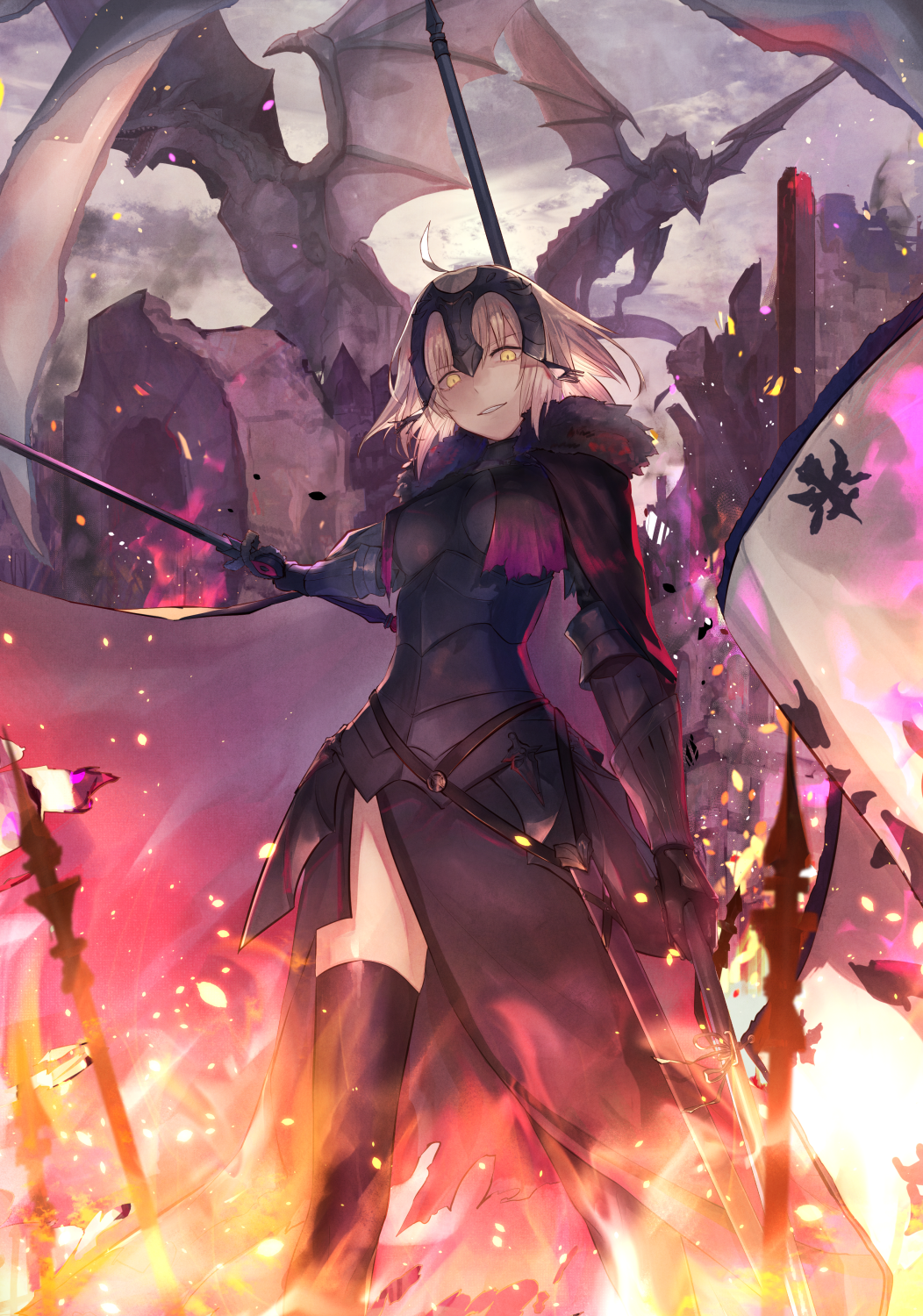
The Dusksworn
Dusksworn (v.1.0.2) by u/Avaricium
Become a disavowed warrior that wields dark magic, a half caster whose touch causes their foes to wither.